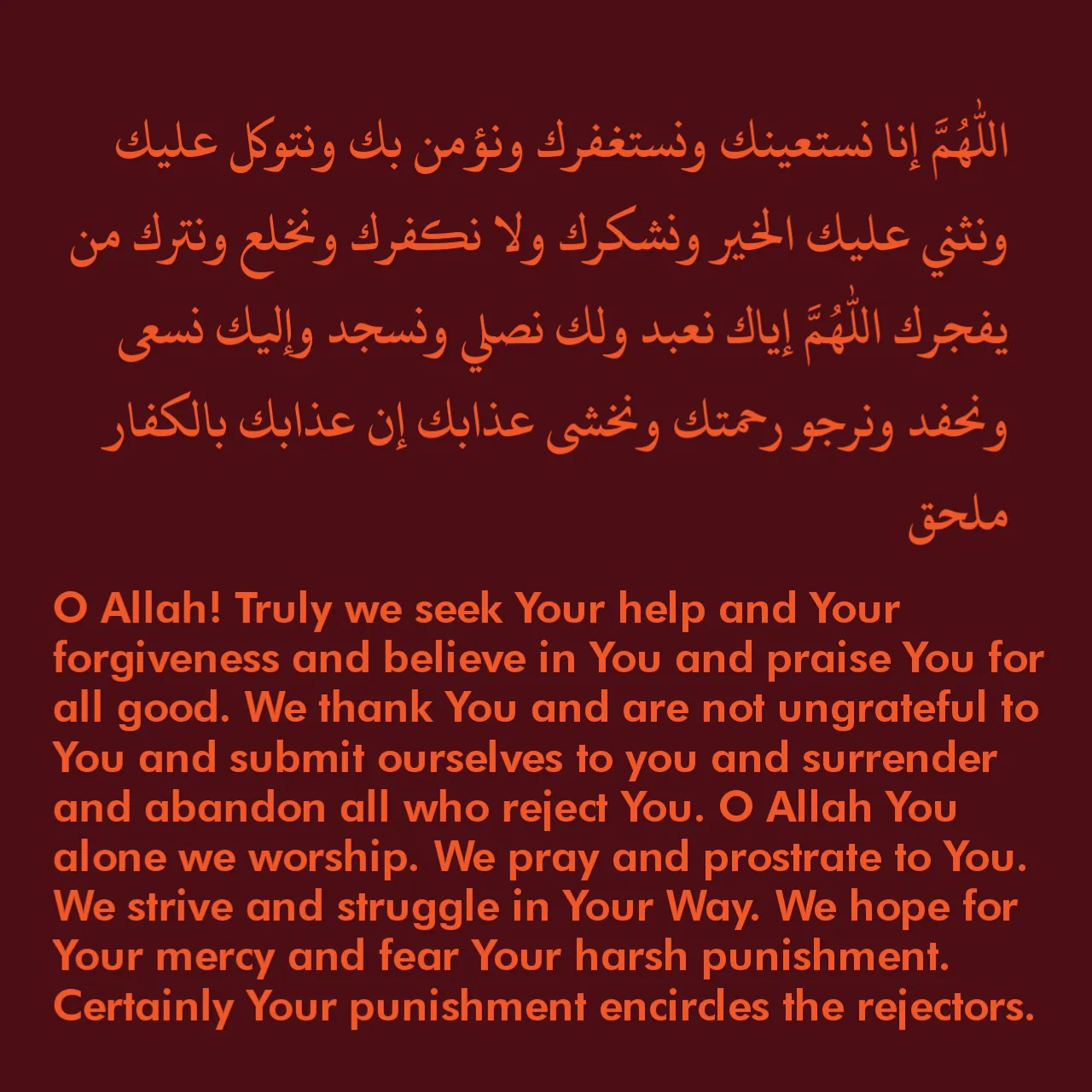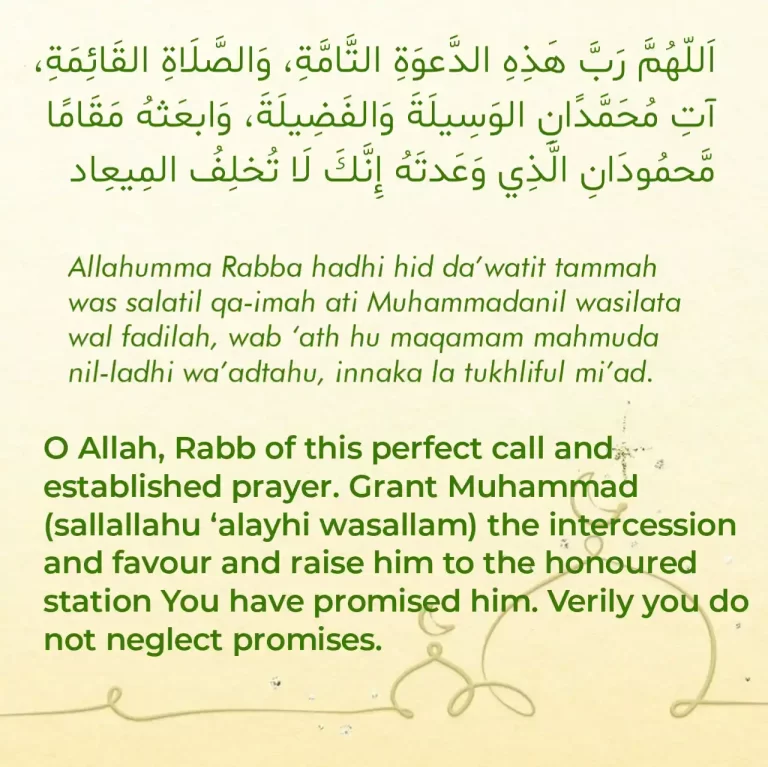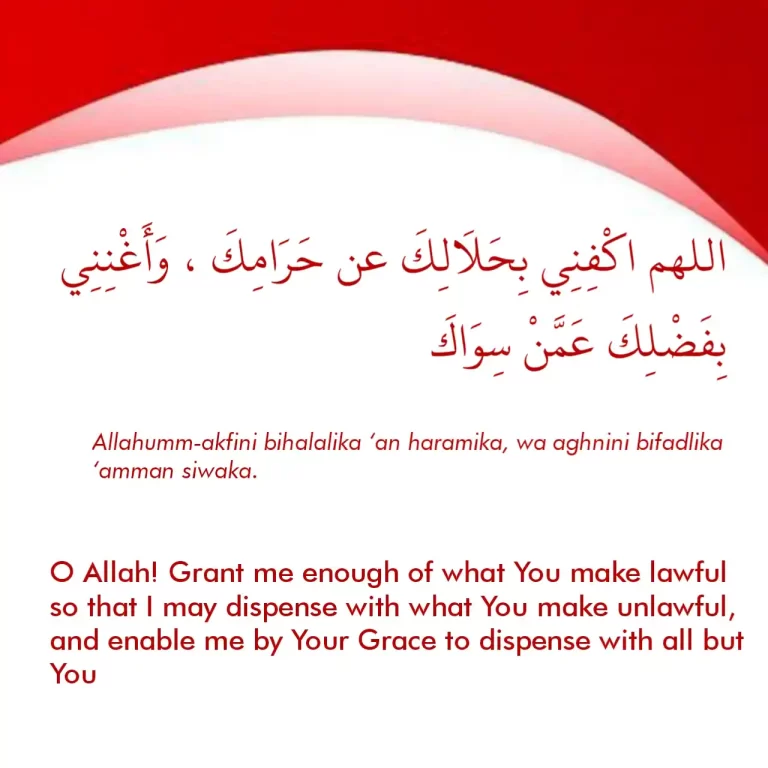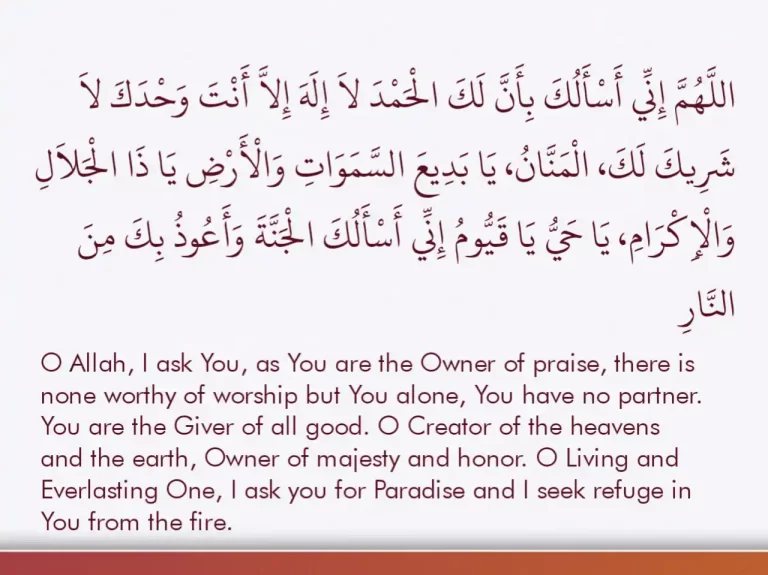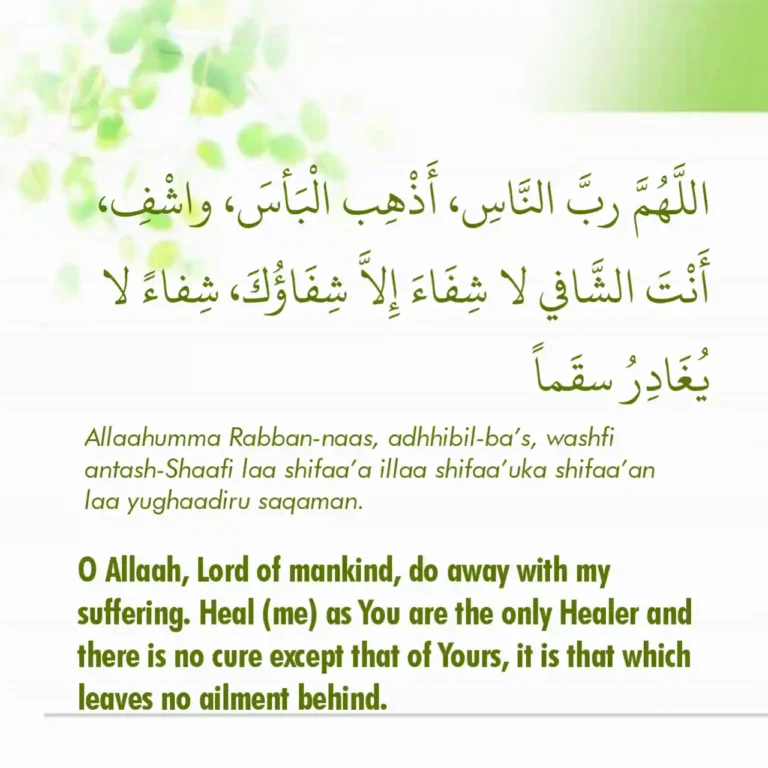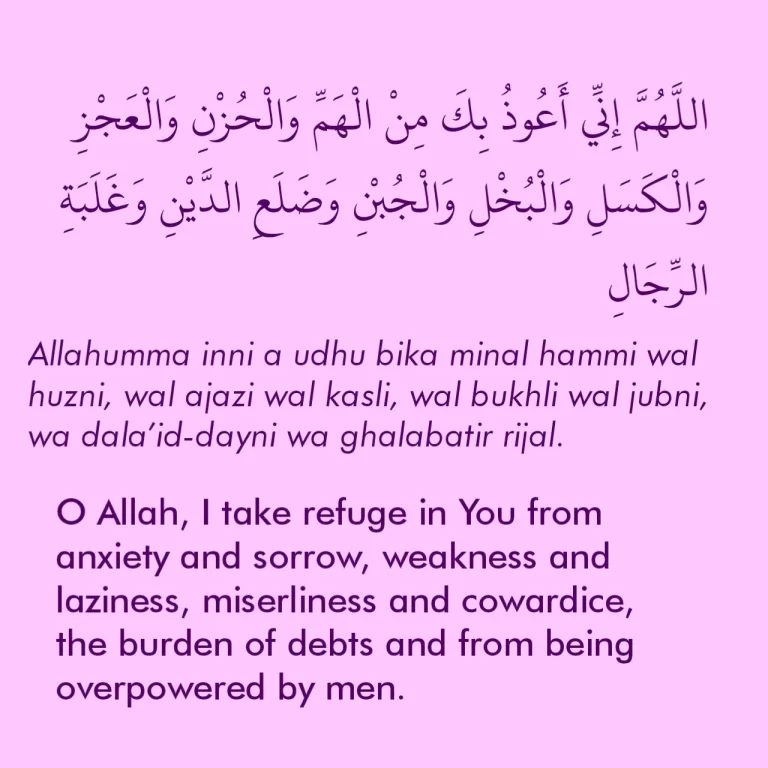Allahumma Inna Nasta Inuka Meaning, Arabic Text, And Transliteration
Allahumma Inna Nasta Inuka is a dua from the Sunnah of Prophet SAW. It is a beautiful supplication fully in conformity with the Glorious Quran.
Advertisements
The dua is often recited at the end of the witr rakat offered during Isha prayer.
But you can recite at any time and as many times as you like.
Meaning Of Allahumma Inna Nasta Inuka Dua In English
The meaning of allahumma inna nasta in English is O Allah! Truly we seek Your help and Your forgiveness and believe in You and praise You for all good. We thank You and are not ungrateful to You and submit ourselves to you and surrender and abandon all who reject You. O Allah You alone we worship. We pray and prostrate to You. We strive and struggle in Your Way. We hope for Your mercy and fear Your harsh punishment. Certainly Your punishment encircles the rejectors.
Allahumma Inna Nasta Inuka Full Dua In Arabic
Here is the full Dua of Allahumma Inna Nasta Inuka in Arabic Text:
Advertisements
اللهم إنا نستعينك ونستغفرك ونؤمن بك ونتوكل عليك ونثني عليك الخير ونشكرك ولا نكفرك ونخلع ونترك من يفجرك اللهم إياك نعبد ولك نصلي ونسجد وإليك نسعى ونحفد ونرجو رحمتك ونخشى عذابك إن عذابك بالكفار ملحق
Transliteration/Pronounciation
The transliteration of this beautiful dua is,
Allahumma inna nasta inuka wa nastaghfiruka, wa nu’minu bika wa natawakkalu ‘alaika wa nuthni ‘alaikal khair, wa nashkuruka wa la nakfuruka wa nakhla’u wa natruka manyyafjuruka, allahumma iyyaka na’budu , wa laka nusalli wa nasjudu wa ilaika nas’a wa nahfidu wa narju rahmataka wa nakhsha ‘adhabaka inna ‘adhabaka bil kaffari mulhiq.

What is Qunut?
Qunut refers to a dua (supplication) made at a precise place while standing during prayer.
When Muslims face adversity, Qunut is advised during prayer.
Advertisements
According to the more correct of the two scholarly opinions, it is prescribed after ruku’ (bowing) in the Witr prayer.
If a misfortune (nazilah) befalls the Muslims, it is recommended to say Dua al-Qunut after rising from ruku’ in the last rak’ah of each of the five daily obligatory prayers until Allah relieves the Muslims of the calamity. (See Shaykh Bakr Abu Zayd’s Tashih al-Du’a, page 460).
There is no sahih evidence that the Prophet (peace and blessings of Allah be upon him) specifically chose Fajr for Qunut or that he recited it in Fajr prayer all of the time, under all circumstances.
Advertisements
Rather, it is established that he (peace and blessings of Allah be upon him) recited Dua al-Qunut at times of calamity, using terms that were suited for the circumstances.
It is preferable for the imam to limit Qunut to times of calamity.
There are several wordings that have been narrated for Dua al-Qunut in Witr prayer.
When praying Qunut in a time of calamity, one should make supplications that are appropriate to the situation.
It was narrated that ‘Umar prayed Qunut with the words above.
- Read also Allahumma Inni As Aluka Hubbaka,
- Allahumma Antas Salam Wa Minkas Salam
- Allahumma Inni As Aluka Al Afiyah
- Allahumma Inni As Alukal Huda (Meaning And Benefits)
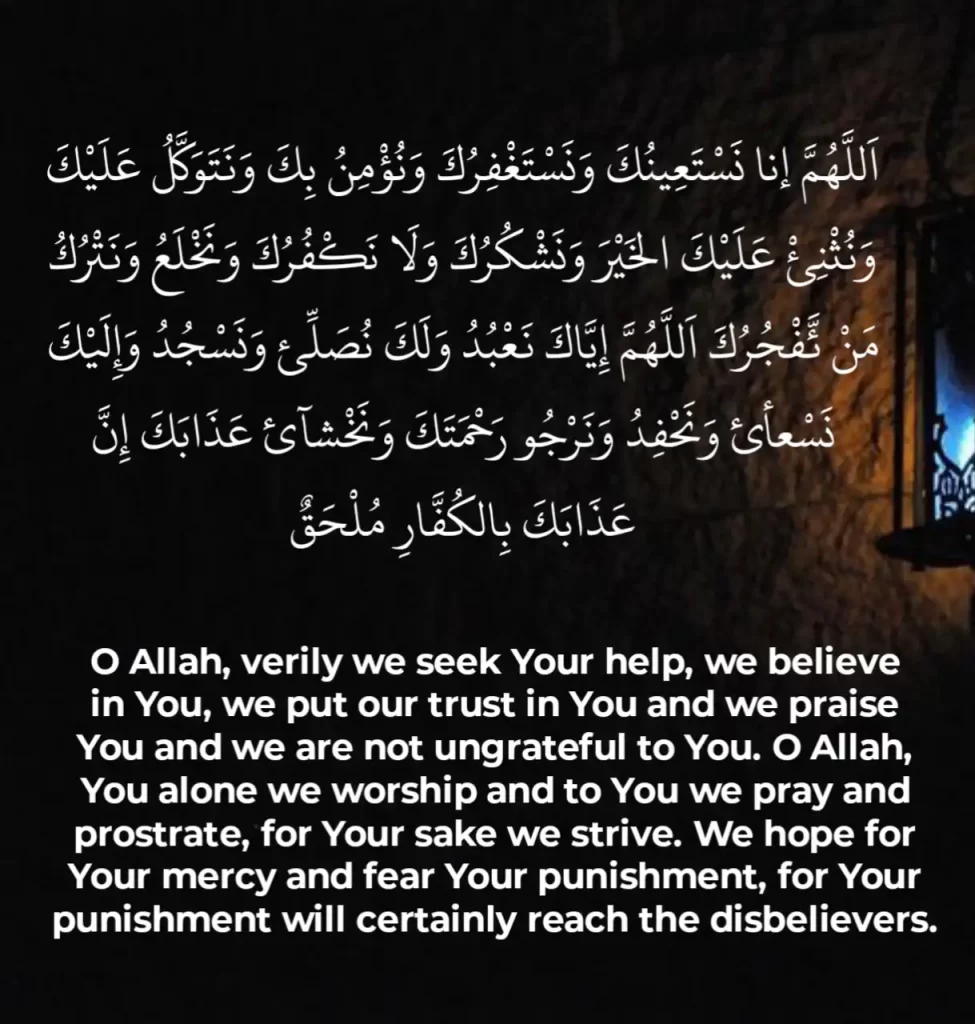
Explanation
1. Seeking Help and Forgiveness:
- In this dua, we start by acknowledging our dependence on Allah.
- We seek His assistance for our challenges and His forgiveness for our sins.
- It reflects humility and the recognition of our limited abilities.
2. Belief in Allah:
- We express our unwavering faith in Allah, the One and Only.
- This affirms our belief in His existence, His attributes, and His sovereignty over all.
3. Praise and Gratitude:
- We praise Allah for all the goodness we have in our lives.
- Gratitude is an important aspect of faith, as it acknowledges His countless blessings.
4. Thankfulness and Non-Ingratitude:
- We emphasize our gratitude and the refusal to be ungrateful.
- Being thankful is a fundamental aspect of maintaining a positive relationship with Allah.
5. Submission and Surrender:
- We submit ourselves entirely to Allah’s will.
- Surrendering implies letting go of our ego and desires, accepting Allah’s plans.
6. Abandoning Rejectors:
- We distance ourselves from those who reject Allah’s guidance and deny His existence.
- This signifies our commitment to faith and righteousness.
7. Worship and Prayer:
- We declare that Allah alone is worthy of worship.
- We acknowledge our acts of devotion, such as prayer and prostration, as a way to honor Him.
8. Striving in Allah’s Way:
- We express our commitment to striving and struggling in the path of Allah.
- This may include acts of charity, helping others, or standing up for justice.
9. Hope for Mercy and Fear of Punishment:
- We acknowledge our hope for Allah’s mercy and fear His punishment.
- This balance reflects a healthy sense of accountability and reverence for His justice.
10. Warning to Rejectors:
- The dua concludes with a reminder of the consequences for those who reject Allah’s guidance.
- This serves as a call to reflect on one’s faith and actions.
In essence, this beautiful dua is a comprehensive expression of faith, gratitude, submission, and a commitment to righteousness.
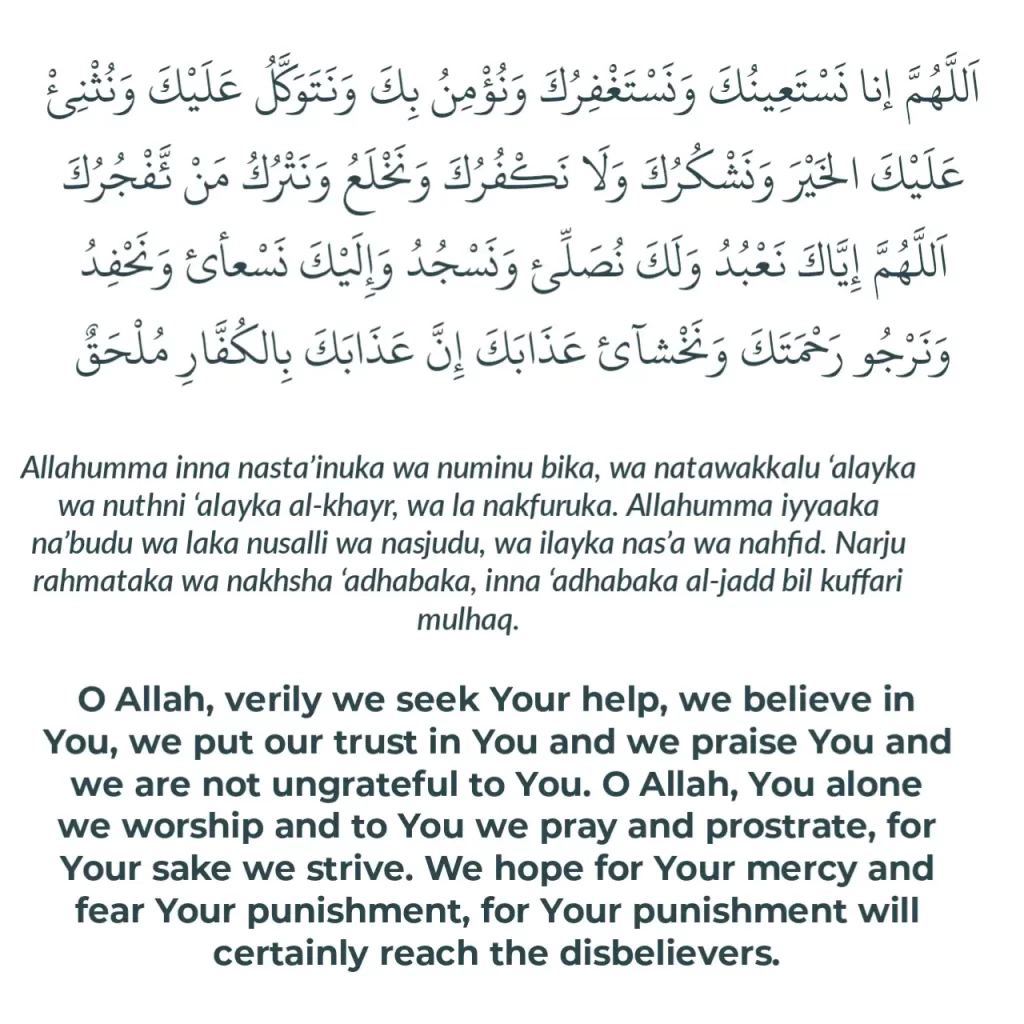
Benefits Of The Dua
Here is a list of some of the potential benefits of reciting the mentioned dua:
- Spiritual Connection: Reciting this dua helps strengthen your spiritual connection with Allah, reminding you of your faith and dependence on Him.
- Gratitude: It encourages a sense of gratitude, making you more aware of the blessings in your life and promoting a positive attitude.
- Humility: The dua fosters humility by acknowledging your need for Allah’s help and forgiveness, keeping your ego in check.
- Submission: It reinforces the concept of surrendering to Allah’s will, which is essential in Islam.
- Repentance: Seeking forgiveness in the dua allows you to express remorse for your sins and seek Allah’s pardon.
- Renunciation of Rejectors: It reaffirms your commitment to faith and helps you distance yourself from those who reject Allah’s guidance.
- Worship and Devotion: By stating that Allah alone is worthy of worship, the dua reminds you to maintain a strong practice of acts of worship and devotion.
- Striving for Good: Expressing a commitment to striving in Allah’s way encourages you to engage in charitable and righteous actions.
- Hope and Fear: The dua promotes a balance between hope in Allah’s mercy and fear of His punishment, motivating you to stay on the path of righteousness.
- Reminder of Consequences: The mention of consequences for rejectors serves as a reminder of the importance of faith and adherence to Allah’s guidance.
- Inner Peace: Reciting this dua can bring inner peace and reassurance, especially in times of difficulty or uncertainty.
- Increased Faith: Repeating these affirmations can strengthen your faith and belief in Allah’s presence and power.
- Positive Mindset: Focusing on gratitude and submission can lead to a more positive and optimistic outlook on life.
- Guidance: The dua reinforces your commitment to seeking Allah’s guidance, helping you make better decisions and choices.
- Protection from Negativity: By distancing yourself from rejectors, you can protect yourself from negative influences and maintain a pure faith.
- A Sense of Purpose: The commitment to striving in Allah’s way gives your life a sense of purpose and direction.
- Remembrance of Accountability: The dua reminds you of your accountability for your actions, encouraging you to act with integrity and righteousness.
Reciting this dua regularly can have profound spiritual and psychological benefits, helping you maintain a strong connection with your faith and live a more virtuous and fulfilling life.
And Allah knows best.
Advertisements

